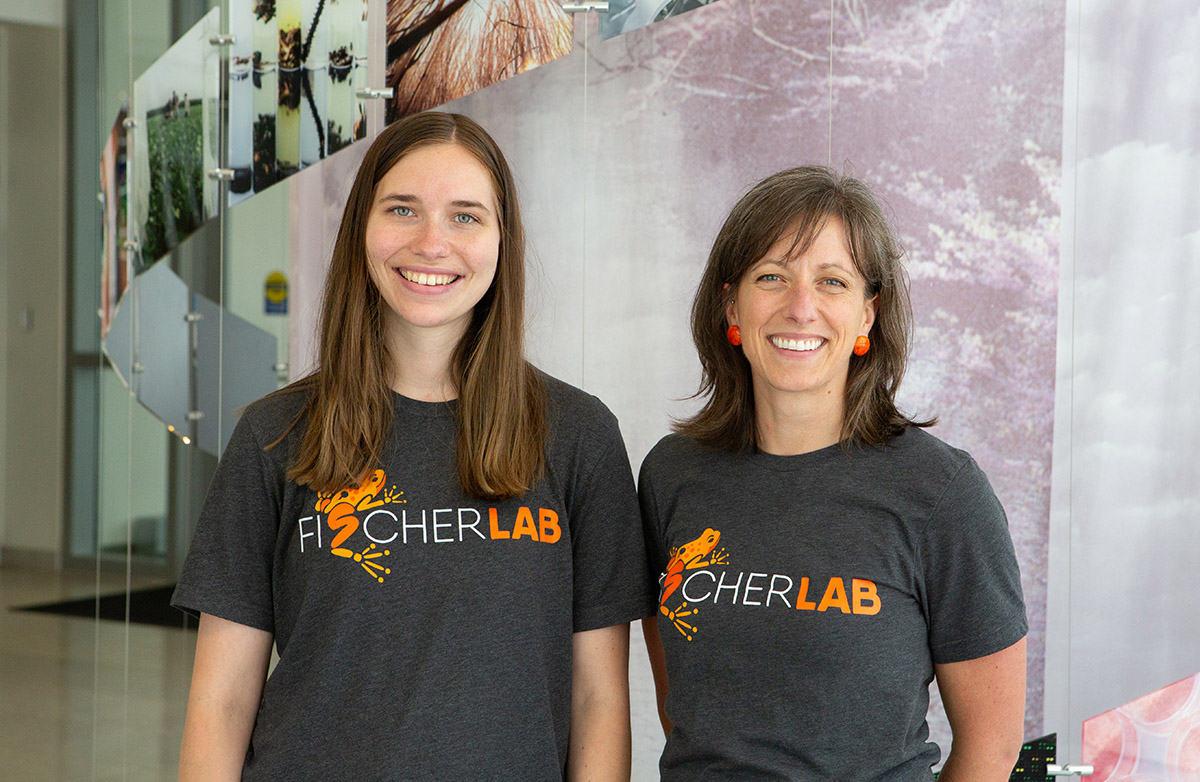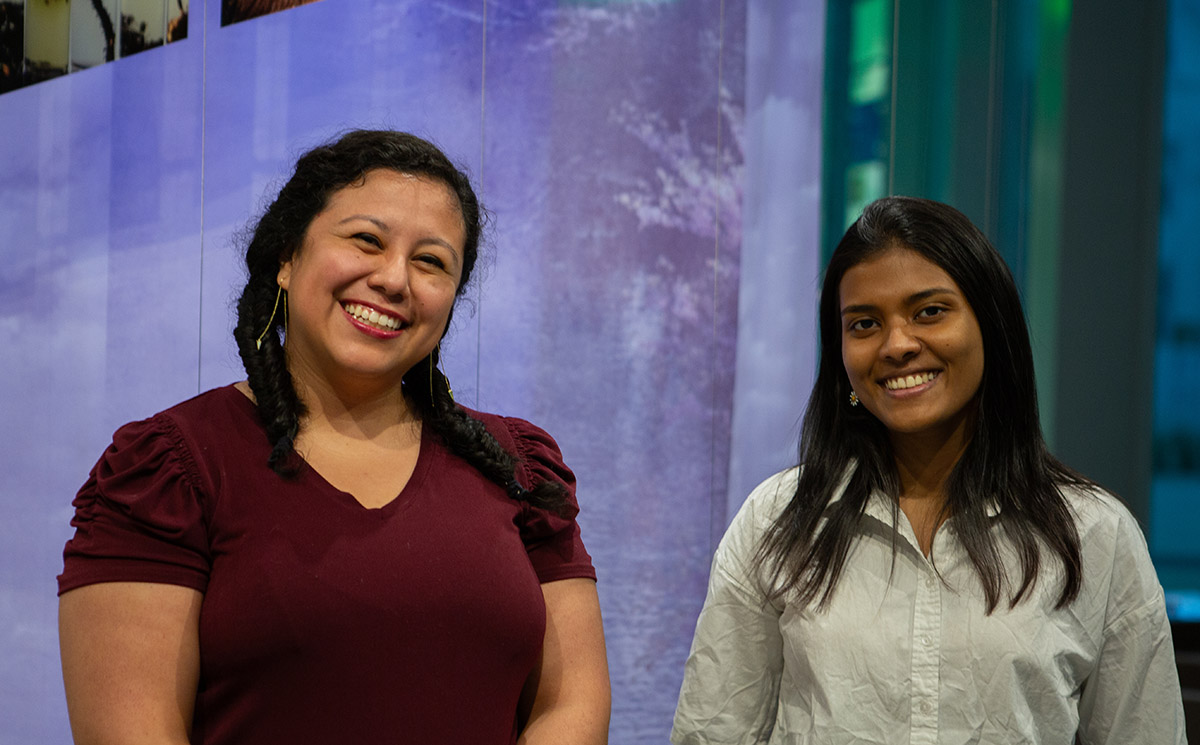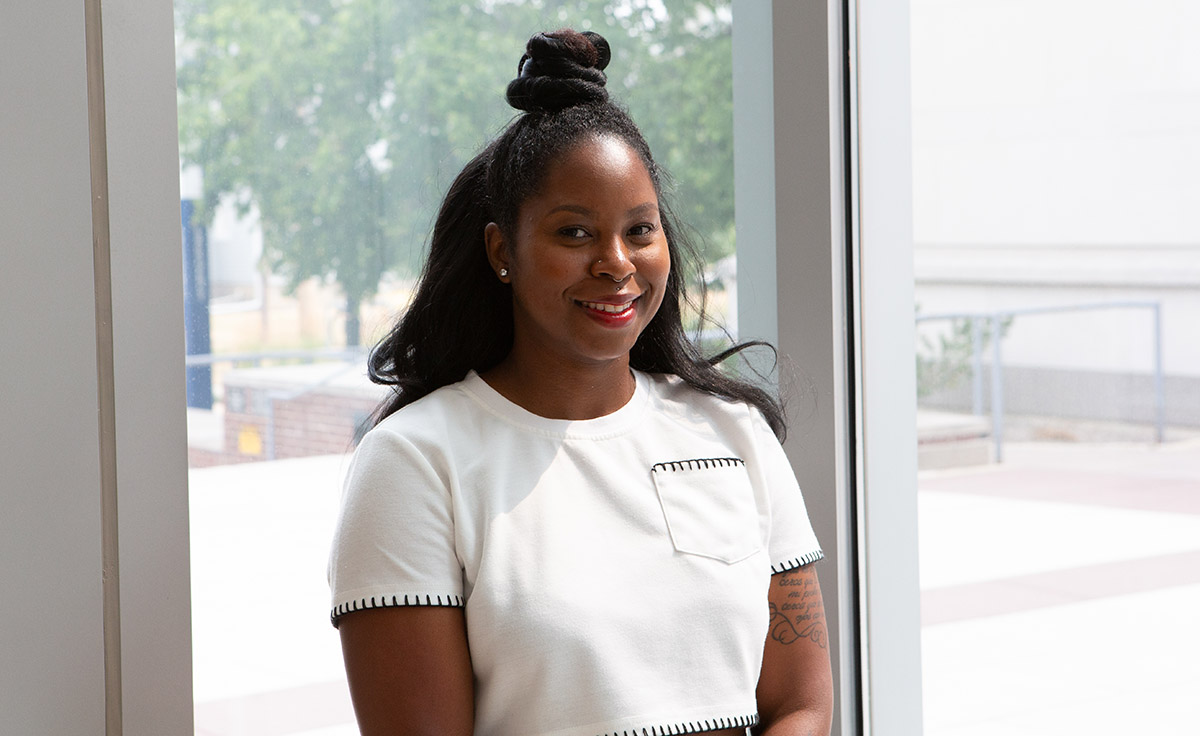The Diversity, Equity, and Inclusion Task Force at the Carl R. Woese Institute for Genomic Biology have awarded three projects for their DEI initiatives. Each project was representative of the different facets of IGB’s mission to bring science to society. The proposals that have been funded include teaching local K-12 schools about poison frogs and how to care for them, helping graduate students feel a sense of belonging to the IGB community, and providing postdoctoral fellows, students, and professionals an opportunity to learn about careers at community colleges. Each project was awarded with $4000.

The first project “Frogs in Class: Using amphibians for ‘ribbiting’ community engagement,” was proposed by Eva Fischer’s (GNDP) lab, which studies parental care behavior in frogs. The lab is actively involved with several outreach initiatives, including IGB’s Genome Day and STEAM TRAIN program. Their experiences have helped them recognize that science outreach serves as a powerful tool for enriching K-12 science education and opposing systemic exclusion of underrepresented groups in science. Their project will educate participants from local K-12 schools about poison frogs and how to care for them. The Fischer lab will also provide necessary supplies required for the classrooms to adopt tadpoles from the lab’s frog colony, and present modules that teach students about research. These modules will be spread out over eight to ten months. The researchers hope that “Frogs in Class” will let students experience the life history of frogs in real time, and simultaneously leverage their curiosity for broader learning objectives, including how model systems are used to answer central questions in biology, how we can mitigate the effects of global climate change, and what it means to be a scientist.

The cross-campus collaborations that make IGB unique is made possible primarily through the graduate students. Melissa Flores and Malavika Venu, both graduate students in the Robinson (GNDP) lab, have proposed the second project, which will create an inclusive space for IGB graduate students through programming that promotes a sense of belonging and provides tools to cultivate professional STEM identities. Flores and Venu will organize three types of events: coffee and community-building brown bag lunches, a digital series that will celebrate graduate student excellence and diversity, and a workshop titled “Microaffirmations & Defining Time for Me.” The monthly lunches will cover a wide range of themes, including science communication, cultivating intentional mentorship, and dealing with imposter syndrome. The digital series will highlight two IGB-affiliated graduate students every month and will focus on their journeys in STEM, their research, and their life outside the lab. The workshop will focus on teaching attendees to identify microaffirmations and set effective boundaries to manage their work/life balance. It will also include group discussions to help attendees meet other graduate students.

The third project is a collaboration between Academic Women in STEM, the IGB Postdoctoral Association, and Parkland College. Titled “Beyond the R1: Providing Teaching Experiences for Women and Minorities at a Student-Serving/Teaching Institution,” the project will be led by Christy Gibson, a postdoctoral research associate in the Bernacchi (CABBI/GEGC) lab; Chelsea Lloyd, an associate professor of microbiology at Parkland College; C. Britt Carlson, an associate professor of chemistry at Parkland College; Bethany Blakely, a postdoctoral research associate in the Bernacchi lab; Alida de Flamingh, a postdoctoral research associate in the Malhi (CIS leader/GSP/GNDP/IGOH) lab; Cindy Chan, a postdoctoral research associate in the Long (BSD/GEGC/CABBI) lab; Lucienne Burrus, a laboratory manager at the Center for Advanced Bioenergy and Bioproducts Innovation; and Tracy Johnson, a field and greenhouse technician at CABBI. The teaching program will provide postdoctoral fellows, students, and professionals from international and historically underserved backgrounds an opportunity to learn about careers at community colleges. It will give them an opportunity to exchange ideas with tenure-track faculty and lecturer mentors at Parkland College. To further support teaching fellows as they develop their lectures, A-WIS and the IGB Postdoctoral Association will work with the Center for Innovation in Teaching and Learning to organize a teaching workshop focused on pedagogical training and to develop a resource packet for the broader IGB community. Through this program, the organizers hope that they can help the participants see themselves represented by more diverse scientists and educators and enhance diversity at community colleges by strengthening the ability of Parkland College to hire diverse faculty, staff, and administration.
